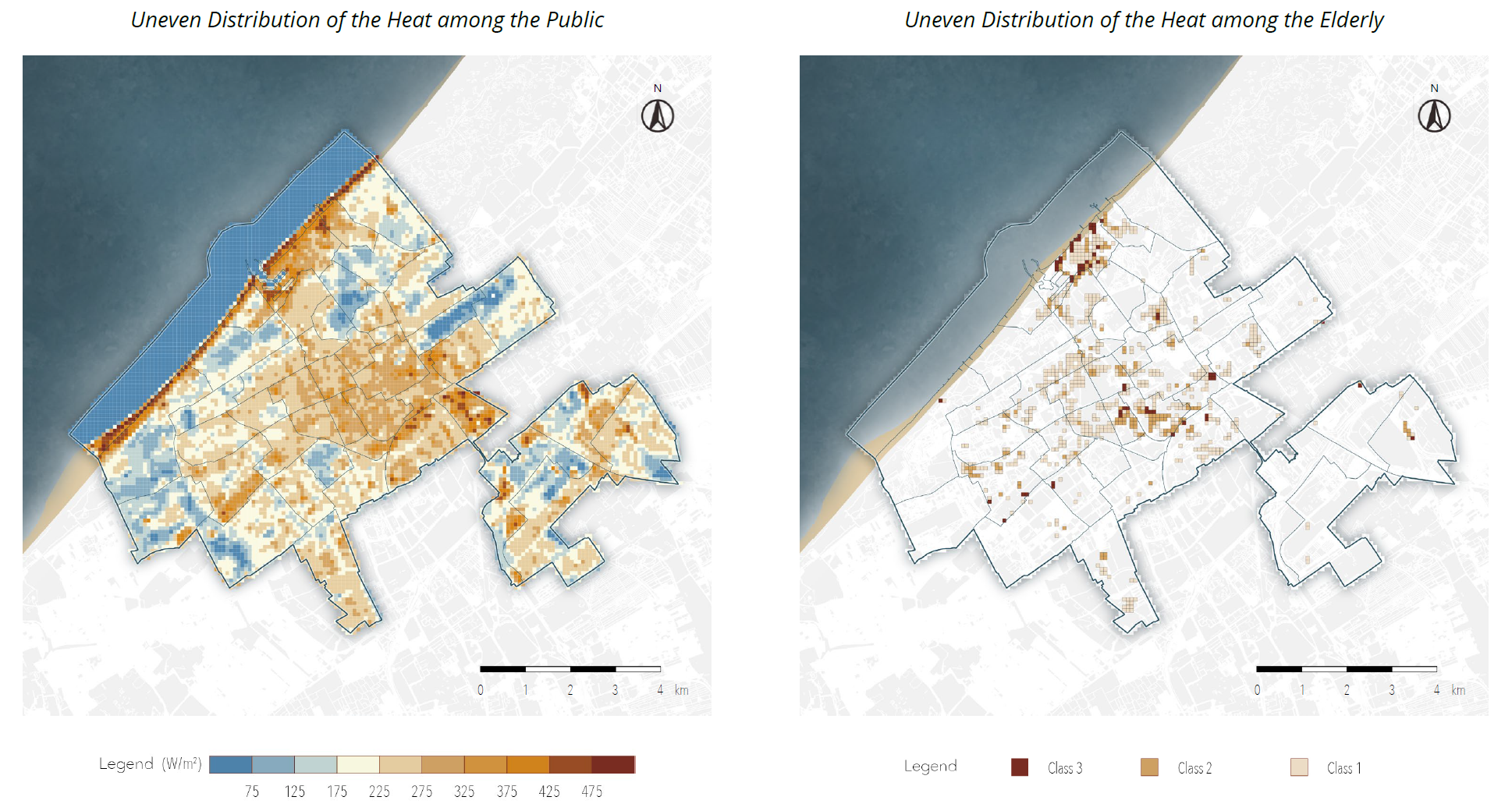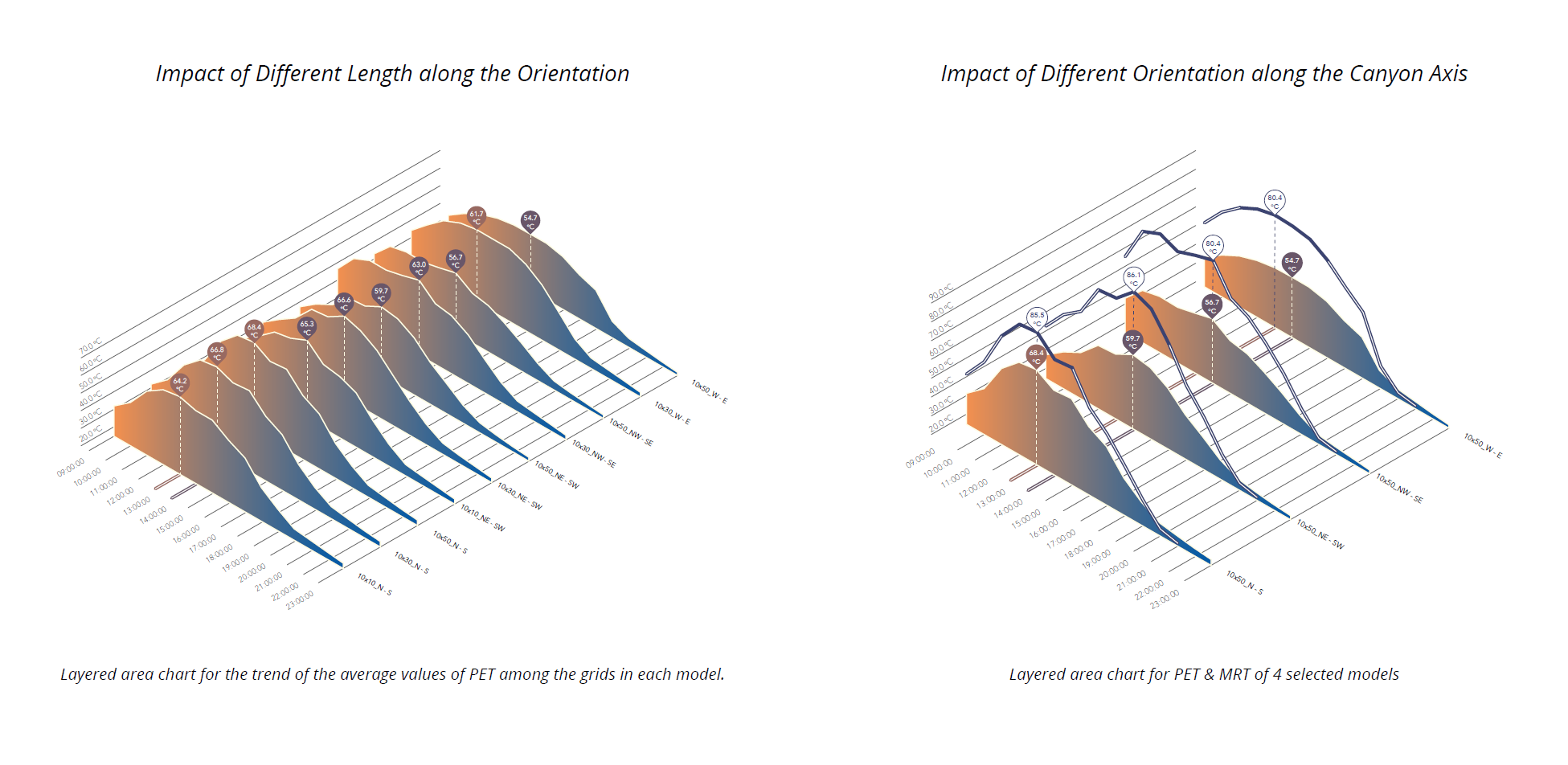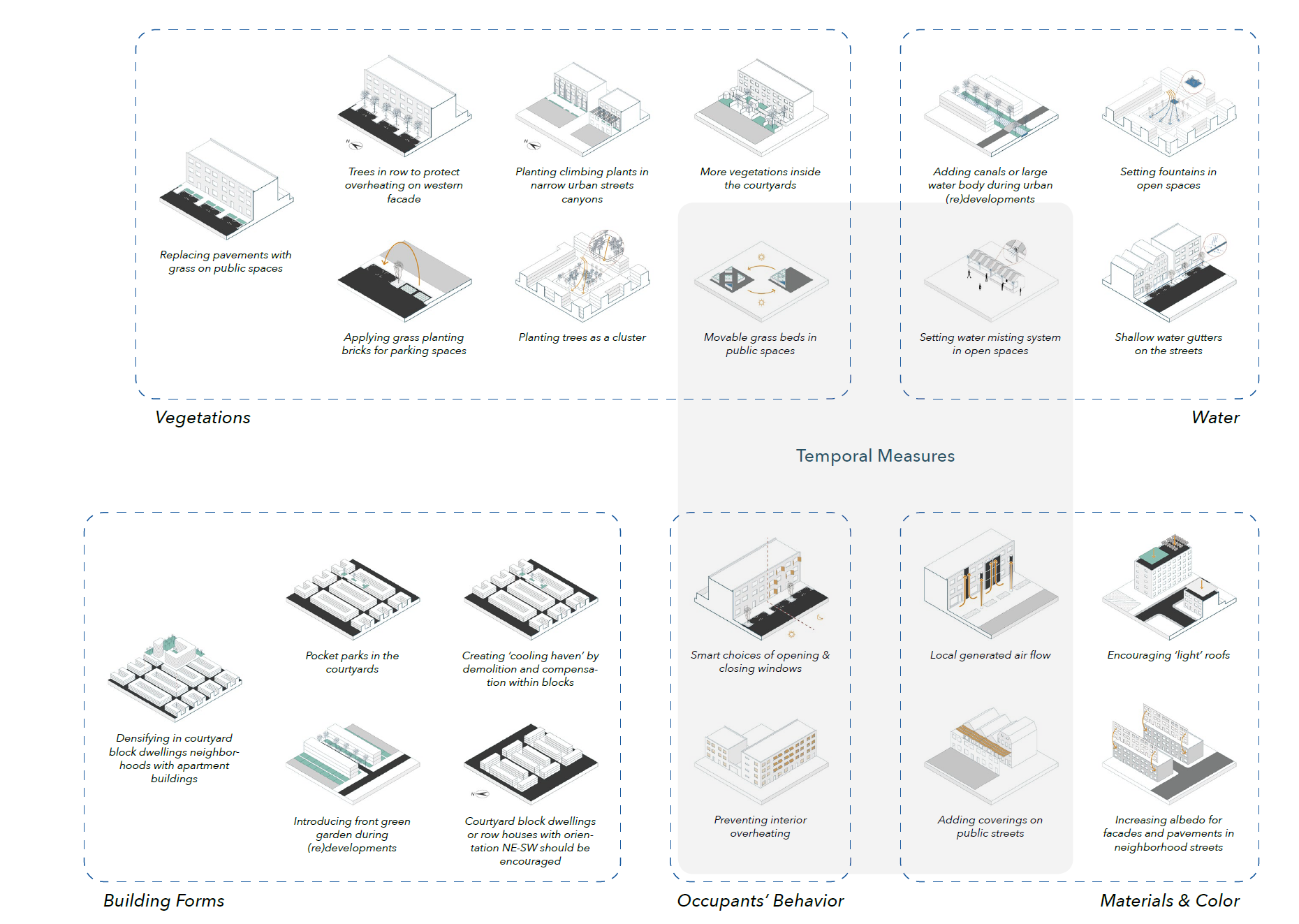Student: Yulin Song
Mentors: Marjolein Pijpers-van Esch, Franklin van der Hoeven
Program: MSc Urbanism
Graduation date: 29-06-2020
Abstract
Netherlands is a coastal country with a typical maritime climate such as mild summers and cold winters but the intensity, duration and frequency of heat waves has been observed increasing since 21st century. The elderly, as one of the vulnerable groups of continuous hot weathers, are the first to be affected by the heat waves with regard to increasing mortality and morbidity while the aging population combined with uneven distribution of the urban heat risks is exacerbating the situation and placing challenge to the public. Public health interventions have been applied in the past few years which have been proved to be effective but the overall effect for the future scenario is questionable. Strategies from urban planning have been focusing on the mitigation of urban heat island and adaption to extreme weather conditions but the effect should be expected in a long term. Since the urban heat island and the uneven distribution of heat risks have strong interaction with physical environments in the urbanized areas, the thesis is seeking for the solutions to intervene within existing urban settings to reduce heat stress for the Dutch elderly through urban design approach to fill in the gap between public health and urban planning interventions. The thesis, by analyzing and researching in The Hague as the test field, introduced an approach to uncovered the causation of the uneven distribution of urban heat risks among the public and evaluate the heat risks level among the elderly from large scale to small scale. The further research on the courtyard block dwellings in the study areas reveals the potential heat risks from the perspective of building configuration and several interventions have been applied within the blocks to reduce the heat stress for the residents.The design outcomes consist of strategies and temporal spatial interventions, ‘Cooling sheds’, and urban microclimate design following the instruction of strategies has been applied in the study areas to the test effectiveness of the strategies. The combination of the application of strategies through urban microclimate design process and the placing of cooling sheds on neighborhood streets could work as a network on various scales to reduce the heat stress for not only the citizens and healthy elderly but also the elderly with restriction of movements in different times in The Hague. The ideas behind the research and strategies could also be applied broadly in the urban renewal process from the microclimate perspectives in the Netherlands to reduce the heat stress among the public.
Subject
heat waves
the elderly
heat refuges
microclimate
urban design






